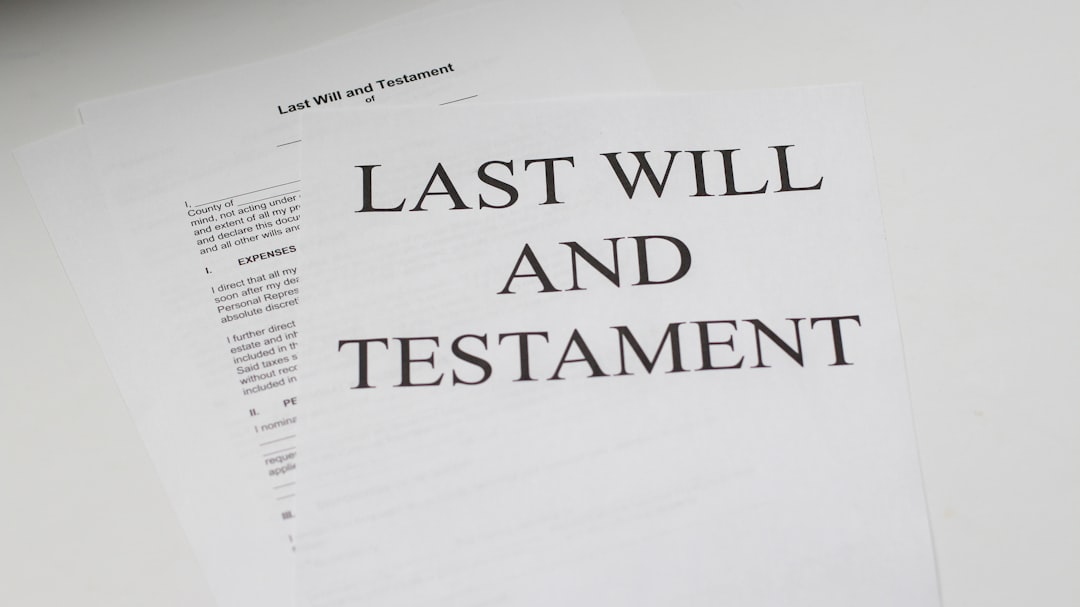Wills Lawyer in Michigan

What is the Purpose of a Will in Michigan?
The purpose of a Will or "last will and testament" is to direct how your property should be distributed after your death. The Will is most important at the beginning and end of the probate process. At the beginning, the Will directs the appointment of your Personal Representative -- the fiduciary who will be in charge of the estate while it is in probate. At the end of the probate process, the Will directs the division of the estate among your chosen beneficiaries.
The person creating a Will is known as a testator (or sometimes "testatrix", for a female person). The beneficiaries under a Will are called "devisees". The testator devises property to the devisees in the Will. Sometimes, the testator names the individual devisees. More often, the testator devises property to a class, such as "to my children in equal shares".
General Requirements of a Will in Michigan
In order for the Will to work as intended, it must adhere to certain requirements of state law. Each state's requirements of a Will and what makes it valid may differ somewhat, but all states have four fundamental requirements.
- The testator must have testamentary intent, meaning the testator subjectively intended to create the Will.
- The testator must have testamentary capacity, meaning that they understood they were creating the Will at the time of its execution.
- The Will must have been executed without the interference of fraud, duress, undue influence, or mistake.
- The Will must have been duly executed through a proper ceremony––for example, signing the Will and having the witnesses sign the Will attesting to your signature.
Intestacy: The "Default" Method if You Die Without a Will
If someone dies without a Will, this is known as dying "intestate." When a person dies intestate, state law determines (1) who may serve as Personal Representative, (2) who are the decedent's lawful heirs, and (3) in what proportion those heirs inherit the estate.
Family
Intestacy laws aim to pass property in a way that most people would want it to pass, which basically means any property is passed to immediate family members first, i.e. spouse, children and other descendants, then parents or siblings, then grandparents, aunts, uncles and cousins, and so on out to 3rd cousins.
Probate
Property governed by intestacy law must pass through probate court, first, which can be expensive and time-consuming, leaving fewer benefits and more burdens for your loved ones. That said, even a valid Will also goes through probate to implement its provisions. The only difference is a well-crafted Will directs the choice of Personal Representative and allocates the estate among the decedent's lawful heirs.
Further, there are other ways to distribute property according to your wishes while also avoiding probate completely. Speaking with an estate planning lawyer will help you determine what will work best in your specific situation and with your specific assets.
The Risks of “Do-It-Yourself” Wills in Michigan
The expense and lack of control that comes from dying intestate, coupled with the perceived costs of hiring a lawyer to write a Will, has led to a huge increase in the use of “do-it-yourself” wills. These forms, often found online for a fee, claim to be just as good as a traditional will prepared by an experienced attorney.
These "one size fits all" documents, however, are not tailored to your unique circumstances. The process to create a DIY will is often accompanied by mistakes that open the door for challenges to the validity of a Will upon your death. In fact, a court may refuse to admit the Will, finding instead that the testator died intestate. Worse, the testator may have an old Will that they thought they were revoking. In that case, the Court might enforce the old Will instead.
If you decide to try a DIY Will first, keep the following tips in mind:
- Define who your family members are. For example, if you brought children into a second marriage, make sure who constitutes “family” in your Will.
- Assign and direct the executor to pay debts and expenses, including anything from credit cards to personal loans to funeral expenses.
- Provide a catch-all clause for assets that you do not specifically give away to named individuals.
- Keep it simple. Don't try to impose wishes or conditions or restrictions on your gifts without the advice of an experienced estate planning lawyer.
Contact an Attorney for Wills in Michigan
Our estate planning attorneys will review your assets and discuss with you what you want with regard to your estate. Making sure your goals for today and tomorrow are met is our personal goal at Lex Novus. Contact us online or at (248) 581-0987 to learn more about wills specifically and estate planning generally so that you and your heirs do not get surprised in a way that is to your detriment.
